Monday Feb 16, 2026
Monday Feb 16, 2026
Wednesday, 3 November 2021 00:00 - - {{hitsCtrl.values.hits}}
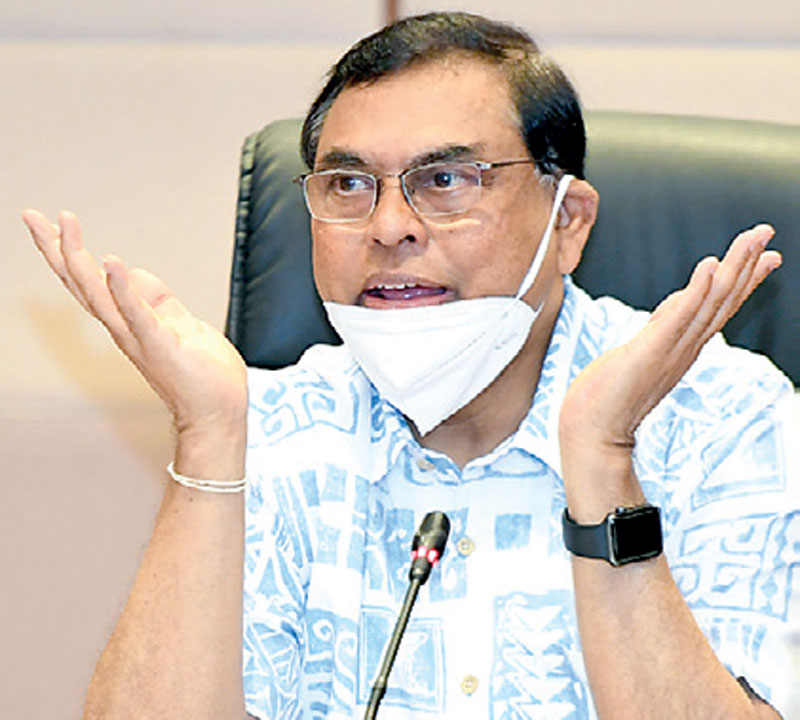
Finance Minister Basil Rajapaksa
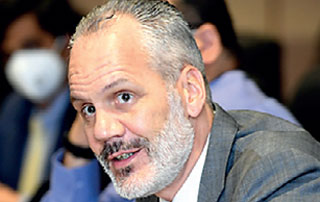
A. Baur and Company CEO Rolf Blaser

AIA Insurance CEO Nikhil Advani

CEAT Lanka Managing Director Ravi Dadlani
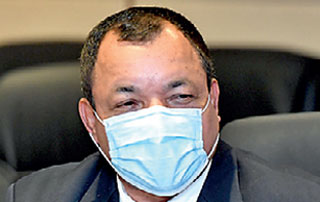
Dole Lanka Managing Director Carlos Antunez
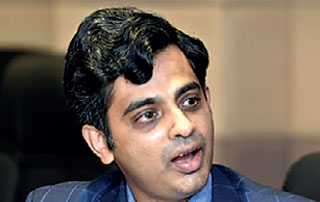
E&Y Global Delivery Service H. Karthik

Huawei Director–Public Affairs and Communication Department Chris Lee
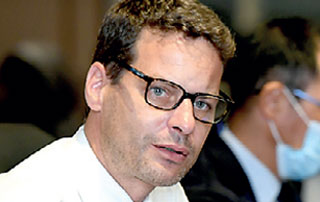
INSEE Cement EVP Jan Kurnigk
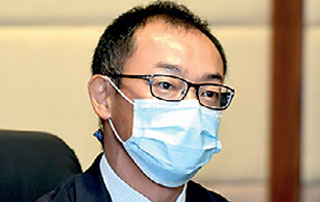
Itochu General Manager Akira Matsui
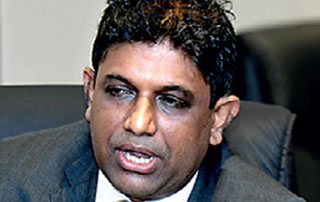
Standard Chartered Bank CEO Bingumal Thewarathanthri

Fiscal Policy Department Director General Dr. Kapila Senanayake
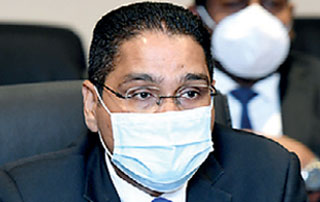
Colombo Uni. MBAA President Boshan Dayaratne
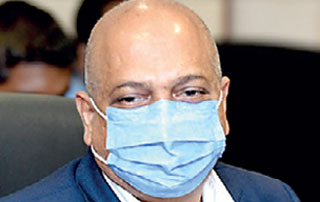
Daily FT Editor Nisthar Cassim
Finance Minister Basil Rajapaksa last week boosted the confidence of Multinational Companies (MNCs) in the country, assuring them of resolving issues they were facing as well as considering their progressive recommendations towards higher foreign investments and economic growth.
Rajapaksa undertook this initiative during the Daily FT and the Colombo University MBA Alumni Association jointly-organised pre-Budget forum. Held annually prior to the presentation of the national Budget, last week’s closed-door discussion was the first for Basil following his appointment as the Finance Minister.
MNCs with growing interests in agribusiness, manufacturing, banking and insurance, technology, trading and services attended the pre-Budget discussion with the Finance Minister facilitated by the Daily FT-Colombo Uni. MBAA.
The one-and-a-half-hour engagement between the MNCs and Finance Minister saw several useful ideas shared as to how best long-standing and relatively foreign companies based in Sri Lanka could further expand their investments, products, services, exports and employment, thereby enhancing their contribution to socio-economic development of Sri Lanka.
Finance Minister Basil Rajapaksa will present his maiden and President Gotabaya Rajapaksa’s second Budget on 12 November.
Akin to an elevator pitch, MNCs were given three minutes each to list one to three most important recommendations as per their business/industry perspective. Thereafter the Finance Minister responded individually or collectively to some of the ideas shared by the MNCs.
The MNCs represented at the pre-Budget forum included A. Baur and Company Ltd., AIA Insurance, CEAT Lanka Ltd., Dole Lanka Ltd., INSEE Cement, Itochu of Japan, Huawei Technologies Ltd., Standard Chartered Bank and Ernst & Young.
With his patient hearing as well as immediate responses in rectifying some of the issues or taking on board suggestions, the Finance Minister boosted the confidence of MNCs. It was indicated that the Government was committed to increasing Foreign Direct Investments (FDIs), thereby stimulating the economy, exports and employment generation.
The MNCs shared many recommendations including consistency in policy, the need for a scientific and holistic policy and master plan on the use and minimisation of fertiliser whilst the Government was encouraging the shift towards organic agriculture, faster approval of land for growing export crops, steps to enhance both global and local market access (by harnessing bilateral agreements) for products made in Sri Lanka by MNCs, reducing Government intervention on pricing, more transparent, pragmatic and faster approval process by the Sri Lanka Standards Institutions, promoting floating photovoltaic (FPV) – the latest trend in solar power generation, supporting and positioning Sri Lanka as a regional hub for low-carbon data centres and sites, additional support policies to attract sustainable financing and further enhance Sri Lanka as a global delivery services hub and enhancing skills development.
The Finance Minister underlined the impact of the COVID pandemic on the country and the economy in terms of foreign reserves and State revenue and stressed that the Government was addressing the challenges via multiple policies and initiatives.
Rajapaksa assured MNCs that the Government was keen to ensure consistency in fiscal policy though there were various recommendations to reduce as well as increase taxes. It was pointed out that any new tax aimed at enhancing revenue to meet the post-COVID challenges would if at all be temporary. It was also clarified that the Government wasn’t favouring or disadvantaging any country but takes decisions in the best interest considering the current and future challenges.